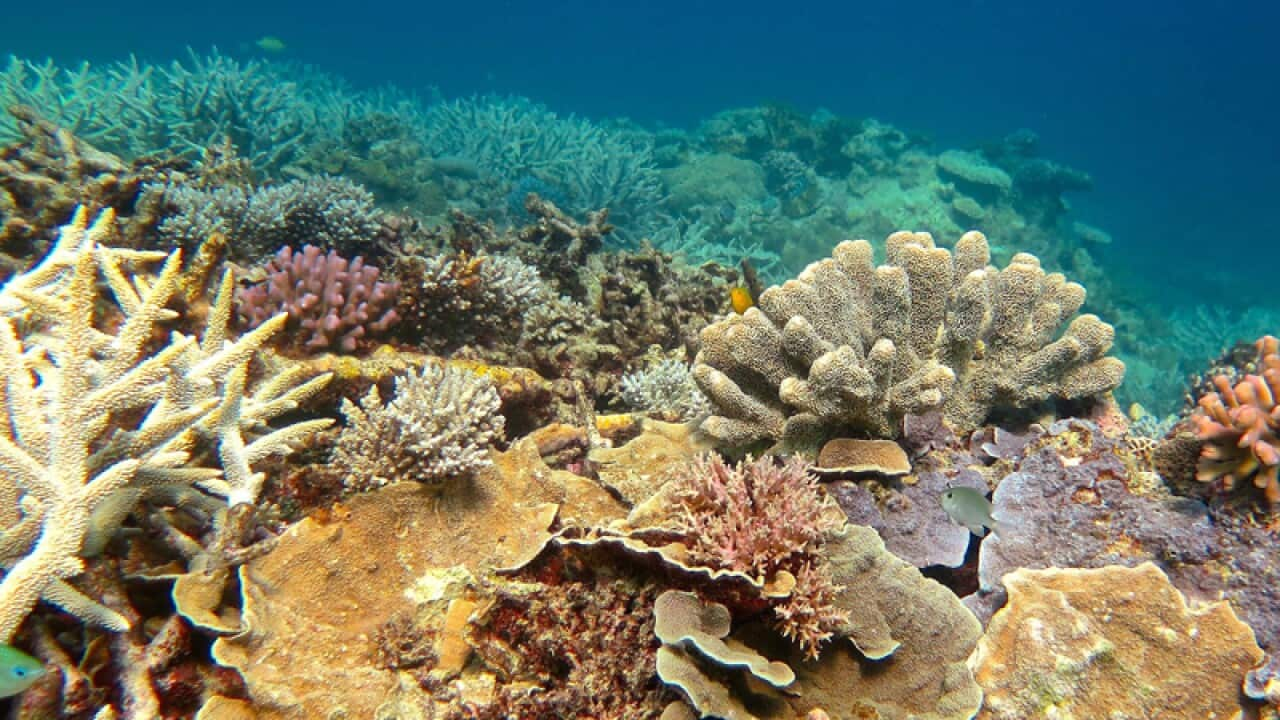Most of the world's reefs will suffer annual coral bleaching within 26 years but the Great Barrier Reef will be hit much later if carbon emission targets are met, a new study says.
The University of Miami research predicts which reefs will be hit first by annual coral bleaching based on global climate models.
It shows, on average, the world's reefs will be start suffering annual coral bleaching in 2043.
It suggests reefs in Taiwan and around the Turks and Caicos archipelago would be among the first to suffer the phenomenon, which occurs when live corals become stressed from overheating and causes them to turn white.
But the study predicts reefs in Australia, the South Pacific, the western Pacific's Coral Triangle, India and the Florida Reef Tract would experience annual bleaching at least 25 years later if emissions reduction pledges materialise.
"The projections show us where we still have time to act before it's too late," UN Environment head Erik Solheim said.
Scientists say climate change is driving bleaching events by pushing up sea temperatures and it takes at least five years for affected reefs to recover.
The study warns reefs near the equator will experience annual bleaching much sooner than 2043 unless emission reductions pledged under the Paris Agreement materialise.
It also warns severe bleaching will occur annually on 99 per cent of the world's coral reefs within this century if current trends continue.
"It is imperative that we take these predictions very seriously and that, at the very minimum, we meet the targets ... doing so will buy time for coral reefs," Mr Solheim said.
Study leader Dr Ruben van Hooidonk said annual bleaching would invariably cause major ecological changes to coral reef systems and reduce their capacity to provide goods and services such as fisheries and coastal protection.
Share

